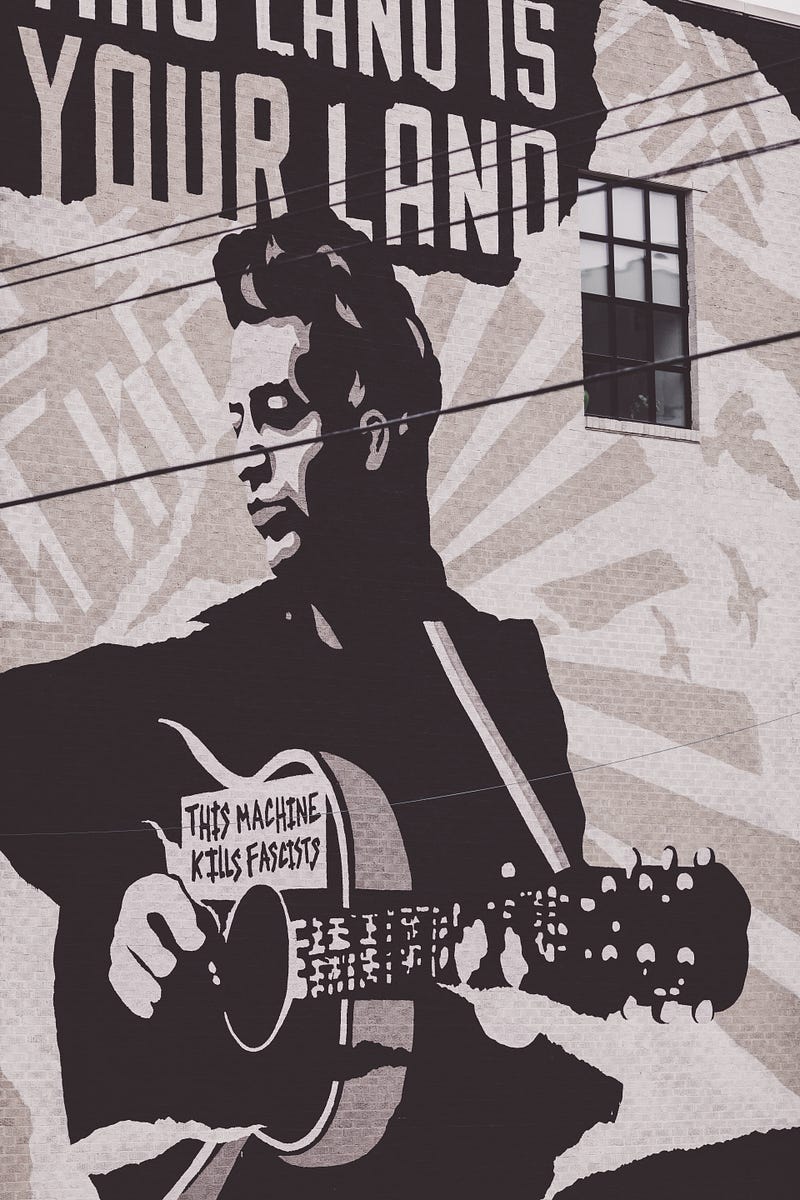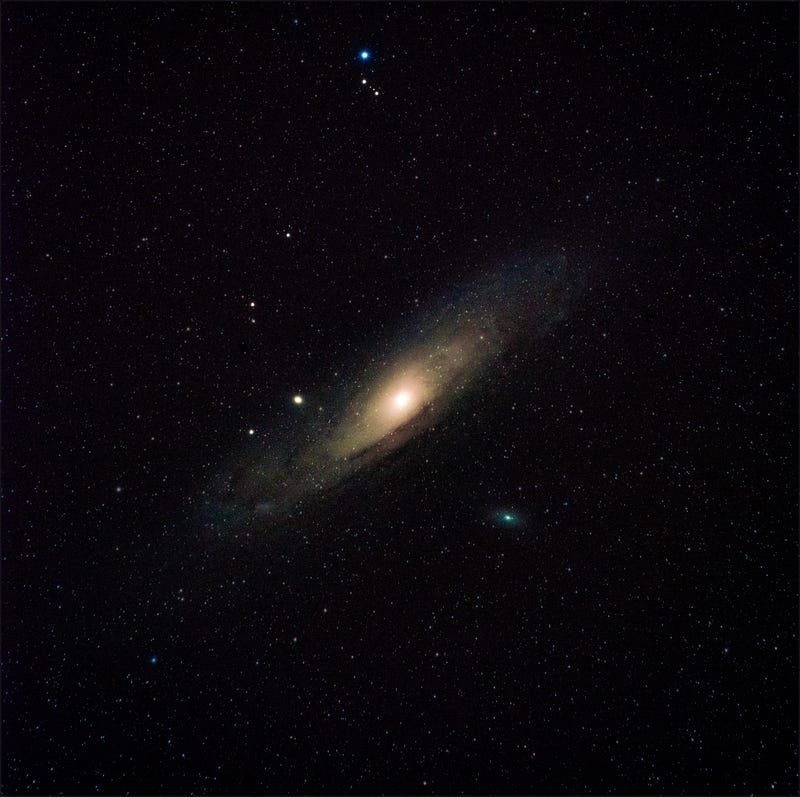Not Me, Us
Bernie may have suspended his campaign, but the fight goes on and the world needs us more than ever

There has never been a movement quite like the Bernie Sanders campaign. The campaign of Henry A. Wallace in 1948 is somewhat similar, especially considering that Wallace, just like Bernie, had to contend with a corrupt bureaucracy which did everything in its power to crush his progressive movement. However, where campaigns like Wallace’s third-party bid for the Presidency garnered just over two percent of the national vote, the Sanders campaign has consistently managed to come in at half of the vote for the whole five years that he has made attempts at the office. Moreover, where previous progressive campaigns often failed miserably in their attempts to push progressive ideals into the zeitgeist, into the common dialogue, Bernie Sanders has utterly transformed American politics as a whole — pushing even his most ardently neo-liberal Democratic colleagues into public admissions of support for such “wild-eyed” concepts as public healthcare and tuition-free college.
Bernie Sanders has transformed our country, and the beacon of his progressive campaign has been a source of light to the world over, catching smoldering resistance to corporate agenda alight in even the darkest parts of the globe. He has been right to lead his campaign with the slogan “Not Me, Us” but there can be no denying that Senator Sanders became the figurehead for the ideals he championed, a figurehead which the people he rallied shall likely remember and be inspired by for years to come.

A changing world
The 21st century is a different animal than the 20th, or indeed than any epoch in human history. We are on the cutting edge of changes that shall shape our entire species for millennia to come; what we do in the world of today will continue to matter long after our time.
The COVID-19 pandemic crisis shifted things dramatically in every part of society and in every location on the Earth. But it will not be the last pandemic faced during this century — nor, if scientific prognosticators are correct, will it be the worst. Climate crisis is still in full swing, authoritarian governments and movements are thriving, massive refugee waves will soon be sweeping the shores of the industrialized world, and all the old systems of political and social elitism will continue to place the interests of a very few above the needs and common good of the many.
I don’t write this in order to depress you or make you angry — though it makes sense if you are. I write this because we need to remind ourselves, not simply what the stakes are, but what sort of changes will be required to overcome the obstacles in our way.
The industrial age has been marked by commerce and a philosophical adherence to certain market principles which easily matches even the most zealous of religious fundamental teachings. And yet these systems are failing not merely the lower classes, but the very ecological systems on which every single person on the planet relies. So, we need a new system, a new philosophy.
The whole progressive movement, which Senator Sanders helped to midwife into a position of power, is not the end of the road. The progressive agendas currently on the table are, by and large, average, middle-of-the-road policy changes designed to (A) make life better and more sustainable for the lower classes (and to see a return of the essentially-defunct middle-class), and (B) prepare our industrial society for some of the challenges certain to face it in the next century.
We need to keep fight for these, tooth and nail. We need to fight for these policy changes with every inch of our soul. But we also need to look beyond them to a different type of change, a change more sweeping and fundamental, a change which upends the very philosophies of market-based thought on which our global dominion currently rests.

A galactic perspective
Have you ever looked up to the sky and wondered “what is it like out there among the stars?” The universe is a vast and wonderful place and even our own most local piece of the cosmos is vast beyond physical human comprehension. And yet, there remain observable truths about the way the universe works, truths which we can see in the formation of distant galaxies, and truths which form the basis for a new type of thinking, a new philosophy on which to stand.
Enter: Systems Thinking.
Our current philosophical models of the social fabric of our world make certain assumptions. Economists often like to say that their work is a “science” when really it’s just a self-important form of philosophy and sophistry, one which has hoodwinked the consciousness of our societies into the belief that its models and goals are not merely superior, but fundamental to nature.
“When economists insist that they too are scientists because they use mathematics, they are no different from astrologists protesting that they are just as scientific as astronomers because they also use computers and complicated charts.”
― Yanis Varoufakis, Talking to My Daughter About the Economy: A Brief History of Capitalism
Systems thinking is also applicable to the philosophic realm — but it actually is a science. Within this form of thinking, the connections between all things are realized and highlighted. We go from being a collection of separate pieces forming a “mere” incidental whole, to a whole which is truly larger than the sum of its parts. Did you know that your matter is formed of “star stuff,” of the particles of exploded suns billions of years old? That, when you breathe, you take in particles breathed by our greatest thinkers and our most ancient hunter-ancestors? Did you know that when you act during your daily life (ordering coffee, purchasing from an online retailer, or staying at home during a pandemic) that your actions have ripples of consequences so vast that you’d need them graphically-illustrated to even begin to understand them?
Many scientists have realized in recent decades that an isolated approach to human thought and research is destined to reduce our capacity for original thought and expansive breakthroughs. Biology divorced from physics is not a whole of the picture — but neither is art when divorced from science. Neither are the people dying for cobalt in Africa divorced from the batteries used by your cell phone; nor the deforestation in Canada divorced from our collective survival as a species. Each thing that we do has a tremendous impact on the world around us, rippling out through space and time in often-unimaginable ways.
So far, we who dwell in specific social classes within specific countries have felt few of these ripples on a personal level, yet those ripples still exist. We fail to feel them because the natural ecosystem which supports us is incredibly resilient. It has built in layers of organic redundancy at immense levels, and has been capable of shouldering the burden of our poor choices during the last two centuries. But no longer.
Eventually, we reach a point where the system becomes so damaged that a cascade failure takes place. This might be understood in reference to the way the 2019 novel coronavirus kills. Some who become infected with it are fine — their immune system kicks in quickly and their body defeats the invading bug. But, for others, the immune system is a little slow on the uptake. The virus proliferates, spreading through the host organism. Then the immune system realizes that there is a massive foreign presence and it goes into overdrive, attacking with such force that it literally destroys the cells of the host body in its mad-dash for victory. The virus dies, but so does the host. The immune system’s response causes a cascading failure of the body’s systems and, without timely intervention, death occurs.
Well, though the metaphor leaves much to be desired, something very similar is occurring at the global level. As soon as enough damage is done to the ecosystem all those organic layers of redundancy will suddenly begin to fail. And there’s no easy way to tell what the hair destined to break the camel’s back might actually be — though it will probably originate in the world’s oceans, which produce the conditions that make our planet habitable for human life.
I know that not everyone is going to follow the same causal links as me, from progressive US politics to the utter and catastrophic breakdown of all life on our home world. That’s fine. It’s enough to know that what we do in one place has an impact elsewhere. It’s enough if we recognize that our uplifting and securing the lives of every single member of society will have an instant and positive uplifting effect on the whole of society. Just as efforts to reduce the welfare of any member of society will create a corresponding diminishment in the welfare of the whole society.
There are no easy answers here, no instant fixes to the problems that we face. Universal Basic Income, massive social safety nets, and a general reduction of Libertarian “each man for himself” mindset are all things which will help. An end to the dominance of market-centric philosophies will help. A shift to sustainable, local-based economies and production centers will help. And, together, these things might produce enough of the right kinds of ripples, fast enough, to sway our fate and the fate of the ecosystem which cradles us and so many other forms of life.
Not Me, Us. Senator Sanders is right, he always was. Now, let’s take up his rallying cry and fight for the future we need.
